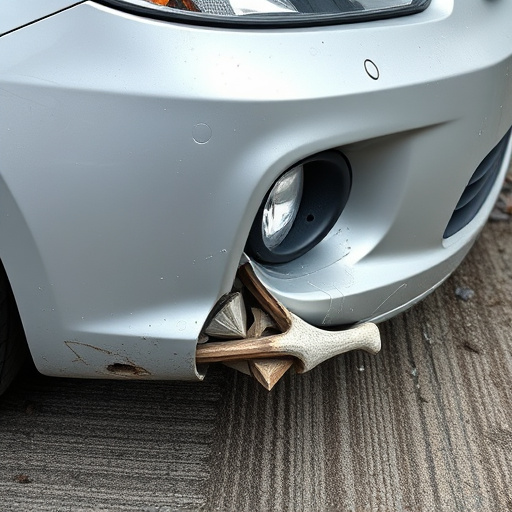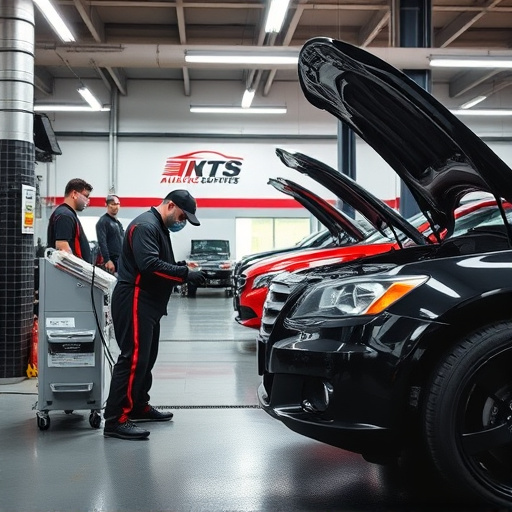A lifetime repair warranty provides peace of mind by covering repair costs for as long as you own your car, but it comes with conditions and potential long-term costs. Evaluate its value based on your driving needs and budget—it's beneficial for frequent repairs but might be excessive for occasional drivers. Research reputation, coverage, exclusions, and service providers to make an informed decision.
Are you considering a lifetime repair warranty for your next purchase? These guarantees have gained popularity, promising peace of mind. But is it a smart investment or a costly mistake? This article guides you through the essentials of lifetime warranties, explores their advantages and drawbacks, and provides insights to help you make an informed decision. By understanding these coverage options, you can choose the best protection for your valuable investments.
- Understanding Lifetime Repair Warranties: The Basics
- Pros and Cons of Long-Term Coverage
- Making an Informed Decision: Weighing the Options
Understanding Lifetime Repair Warranties: The Basics

A lifetime repair warranty is exactly what it sounds like—a promise by a manufacturer or dealer to cover the cost of repairs for as long as you own a vehicle, regardless of mileage. This type of warranty can offer peace of mind, especially when unexpected incidents like a fender bender occur, requiring extensive auto body services. In such scenarios, having a lifetime repair warranty can significantly offset the financial burden of vehicle repair, making it a worthwhile investment for many car owners.
These warranties vary across brands and dealers, so it’s essential to understand the terms and conditions. Typically, they cover structural repairs, not cosmetic ones, and some may have limitations on what constitutes a “lifetime” period. For example, some warranties might apply only to certain parts or exclude major components like engines and transmissions. Despite these nuances, a lifetime repair warranty can be a valuable addition when it comes to protecting your investment in vehicle repair, ensuring that even minor accidents don’t lead to substantial, unexpected costs for auto body services.
Pros and Cons of Long-Term Coverage

The decision to invest in a lifetime repair warranty is a significant one, offering both compelling advantages and potential drawbacks for vehicle owners. On the pros side, a lifetime warranty provides extensive protection, giving peace of mind that any unforeseen repairs or issues with covered components will be addressed without incurring substantial costs. This is especially beneficial for vehicles prone to specific maintenance challenges, like frame straightening, ensuring long-term reliability and minimizing unexpected expenses at the car repair shop.
However, there are cons to consider as well. Such warranties often come with conditions and limitations; regular maintenance and timely repairs are usually required to keep the coverage valid. Additionally, the cost of the warranty itself can add up over time, especially for vehicle body repair work that may be less frequent but still critical in maintaining a safe and reliable ride. Weighing these factors is crucial before committing to a lifetime repair warranty, as it’s not always a one-size-fits-all solution for every driver’s needs.
Making an Informed Decision: Weighing the Options

When considering a lifetime repair warranty, it’s crucial to make an informed decision by weighing the options carefully. These warranties often come at an additional cost, so it’s essential to assess the value they bring to your specific needs. For instance, if you’re frequently dealing with automotive body work or vehicle dent repairs due to hail damage or other incidents, a lifetime warranty could be a solid investment, ensuring peace of mind and long-term savings.
However, for occasional car owners who primarily focus on routine maintenance, the added expense might not justify the benefits. It’s important to evaluate the reputation and terms of such warranties, considering factors like coverage scope, exclusions, and the track record of the service provider. By understanding these nuances, you can make a well-informed choice that aligns with your vehicle’s needs and your budget.
When deciding whether a lifetime repair warranty is worth the investment, it’s crucial to balance the potential savings against the added cost and the likelihood of needing repairs. While these warranties offer peace of mind, understanding both the benefits and drawbacks is essential. By carefully weighing your options and considering your specific needs, you can make an informed decision that best protects your investment in the long term.














